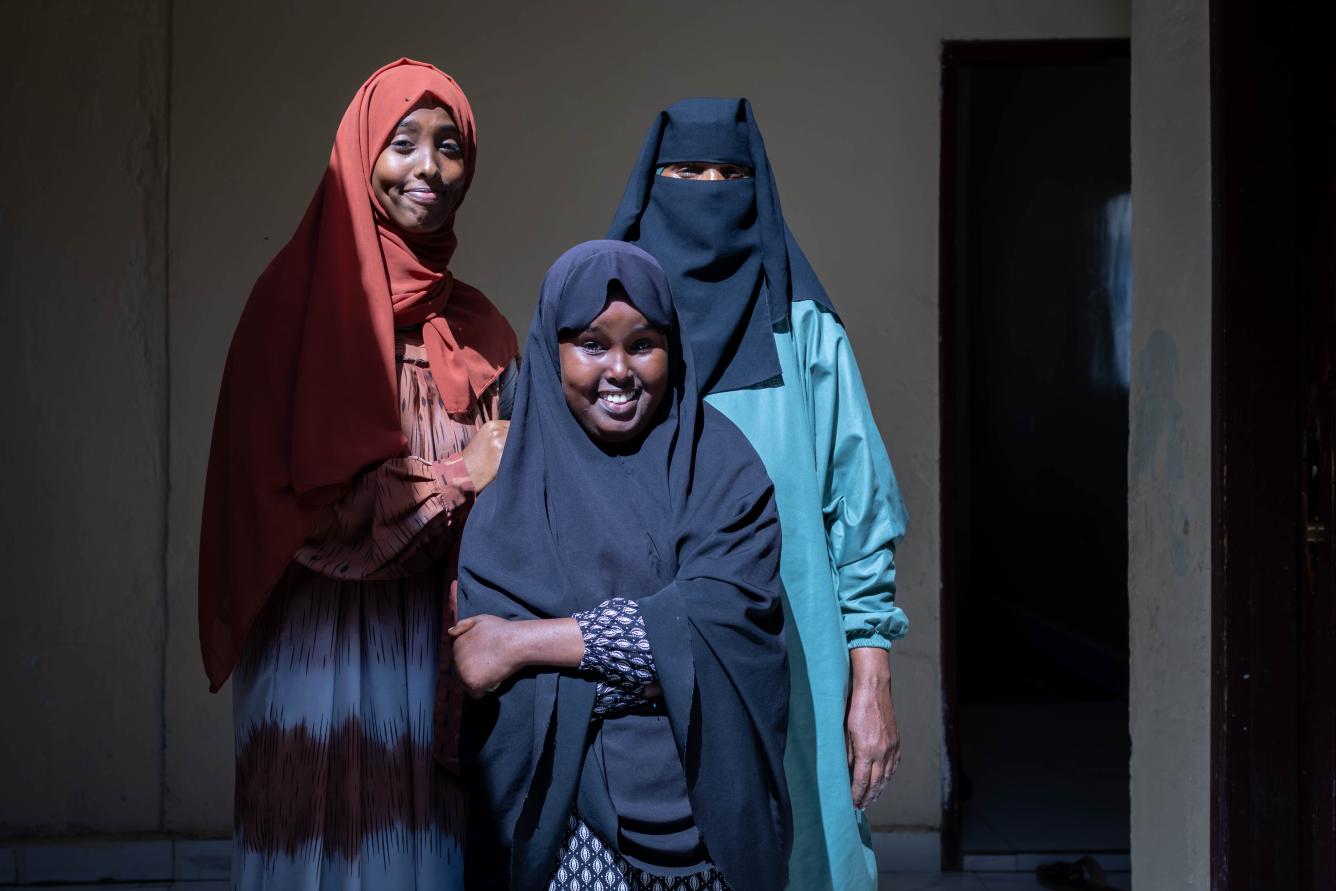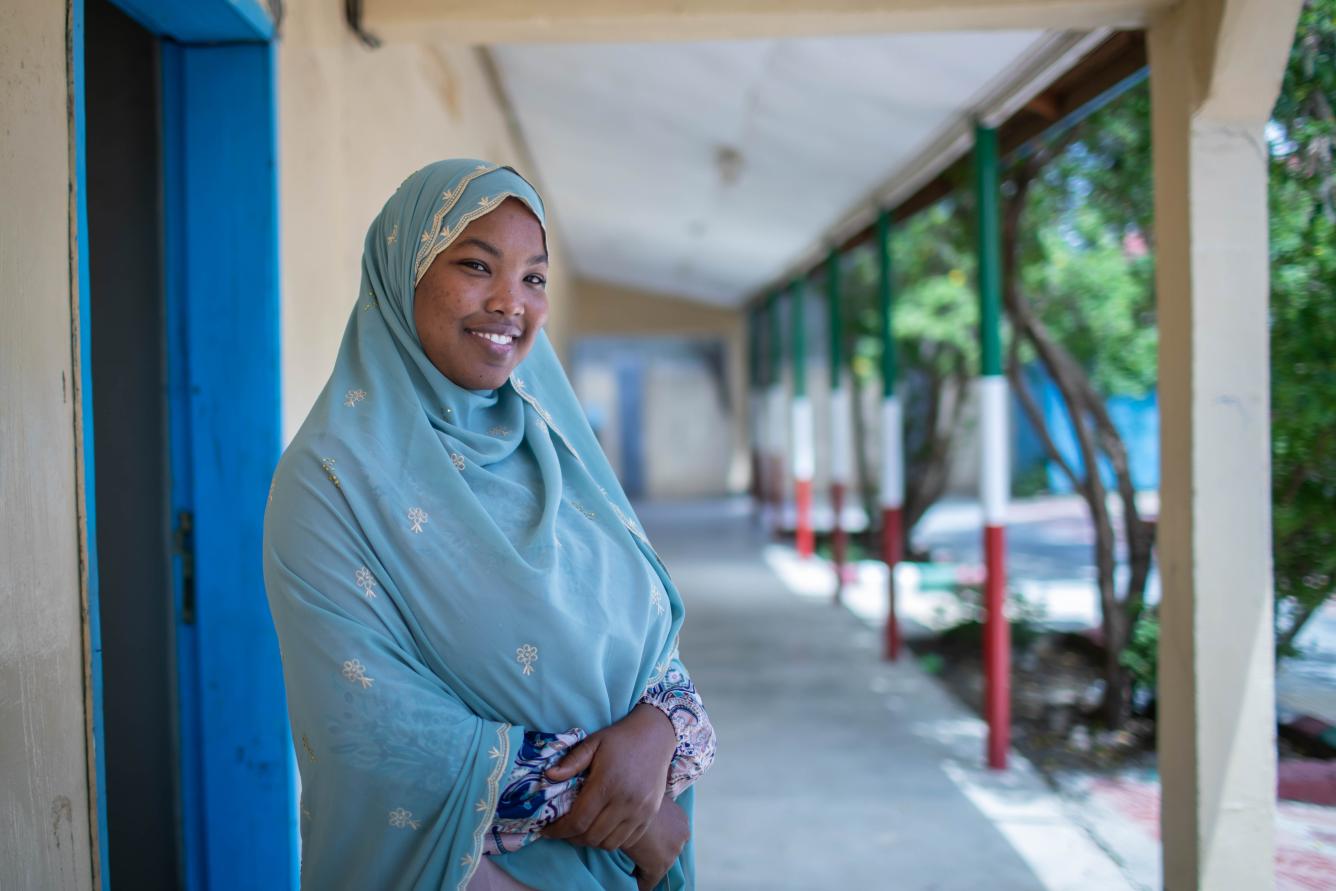Somali girls gain communication skills and confidence through school ‘empowerment’ clubs
Inside a cement-floored classroom at Borama Girls Primary School in Somaliland, a group of 15 girls in white headscarves and maroon tunics chatter in groups, huddled together on rough wooden benches. They are discussing a scenario provided by their teacher, one that is familiar. “A girl called Sagal is sitting with her sibling,” the teacher tells the girls, “And when her mother asks her to help cook dinner, Sagal loses her temper and angrily refuses. Why did Sagal resist her mother’s instructions?” asked Nimo Barkab Adour, the teacher.
“Is Sagal the only one who is always asked to do the chores?” suggested one of the girls, with an adolescent’s instinct for unfairness.
“Maybe she is angry about something else?” proposed another.
“Yes,” agreed the teacher, “perhaps her own inner anger is causing the refusal. We have to help parents understand if we are feeling a particular way; we have to explain it to them.” In other words, talk to your parents and be open and honest.
This weekly meeting of a Girls’ Empowerment Club was a typically cheerful affair aimed at growing the girls’ confidence by strengthening their communication skills, helping them understand and articulate emotions, and navigating conflicts with friends, parents, and others. There are now 30 such clubs in schools across Somaliland, including in the capital, Hargeisa, as part of UNICEF’s UNdaunted programme, supported by the Government of Canada, to strengthen girls’ education.

Building confidence
“The Girls Empowerment Club has boosted my confidence. It has helped me to go beyond myself,” said 13-year-old Saharla Abdikarim Adan, with a perpetual smile on her face. For Saharla, the girls’ club has made education about more than just learning subjects and passing exams. “It has helped to open up good communication channels with my parents – I no longer get angry so easily – and it has also strengthened my friendships with the other girls.”
In the country's conservative and patriarchal society, gender norms mean girls are at the back of the queue when parents decide which children they can afford to send to school and which must stay at home to help with household tasks or look after younger siblings.
Even when they are fortunate enough to attend school, girls are frequently outnumbered and intimidated by the boys and neglected or ignored by the primarily male teachers. Making things harder still, many social topics affecting adolescent girls are considered culturally taboo and are rarely discussed, from menstrual cycles to emotional changes, leaving girls to navigate adolescence on their own.
The result of all this is that girls are less likely to start school and, if they do, are more likely to drop out.
Saharla’s mother, Fihima, did not complete her own primary education and is determined that her daughters will. Six years ago, she moved Saharla from a mixed school to a girls-only one where, Fihima said, “she has done better because of the female teachers.”

Broad impacts
For Saharla, one female teacher in particular stands out: Nimo, who was trained as a mentor through Undaunted to run the Girls Empowerment Club and whose involvement encouraged Saharla to join the club when it started in 2023.
Nimo said the club “gives the girls confidence and empowers them to talk about whatever issues affect them.” Nimo said nothing like it existed when she was a girl: “I had emotional challenges in my teenage years; this would have helped me a lot.”
The easy confidence that Saharla has developed is a tribute to Nimo’s success in bringing the girls out of themselves. The 19 members of the club are drawn from five different year groups, which provides them with a rare opportunity to sit together, talk, learn from one another and share experiences.
In the capital, Hargeisa, 120 kilometres away, another Girls Empowerment Club is in session at Fatuma Bihi Primary School, a large co-educational school on the city’s southern edge. The 17 teenage girls in the club sit in a circle on the floor, taking turns to stand up and talk to the group.
For 17-year-old Fatuma Abdi Warsame, the most important thing she has learnt is, “how to handle our emotions and have fewer arguments at home.” Her friend, Hibo Ibrahim Mohamed, 15, agreed adding, “I am now better able to support my mother at home.”
The Girls Empowerment clubs are hosted at schools, but their impacts are wider and deeper, said Saharla’s mother. “The club has helped Saharla take the lead and communicate better, and we see that at home and at school,” she said. “Our relationship has improved: we talk more.”

A different future
Saharla’s sister, Sondos, sees it too, saying their relationship has grown stronger as Saharla has entered adolescence and learnt how to articulate her feelings. “We are closer than sisters: we are very close friends and confidantes,” said Sondos, 19, who shares her sister’s quick, broad smile.
Sister, friend and confidante, Sondos is also a role model. She is a second-year cyber security student at Amoud University in Borama, which is renowned in Somaliland as a city of universities and learning. Sondos is impressed with the club’s impact on Saharla. “I have high hopes for Saharla’s future. This club has empowered her and given her focus,” she said.
Saharla is still young, and her future is wide open, but one thing she is sure of is that she will not drop out of school early, nor will she have 10 children like her mother, she says, laughing.
“I hope Saharla will finish her education to the highest level and go on to teach others,” said Fihima. Her daughter shares a portion of that dream – the bit about finishing her education – but after that? “I want to be a pilot,” Saharla grinned.
It seems it won’t be long before her skills in communicating and negotiating are put to use again.
